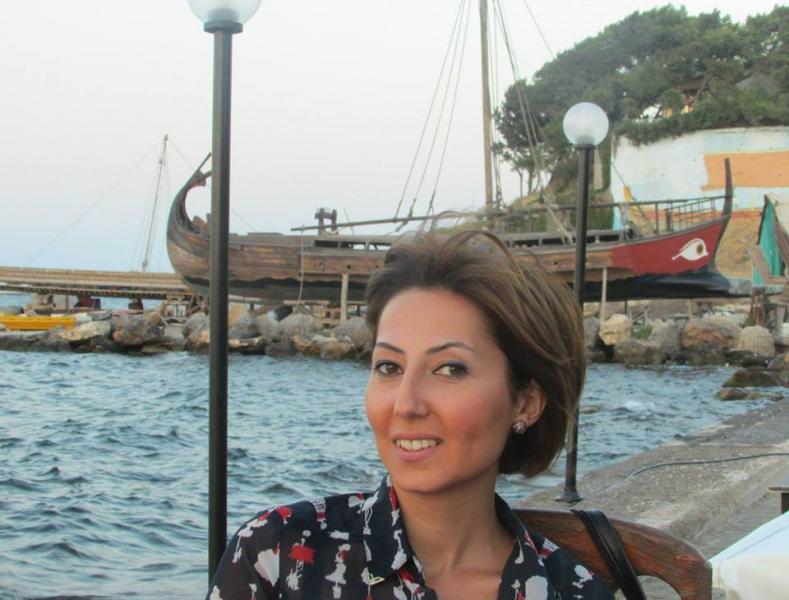After a state emergency was established on March 16, education at the Yerevan Mkhitar Sebastatsi EduComplex was organized through distance self-education family schools. The pandemic got more and more recognizable as the days went by, and new hybrid ways of teaching were emerging. Besides conducting distance-online lessons activities were also held by small project groups in physical environment.
Spring gave us a new experience of organizing education, a new content of organizing our work.
After the Ministry of ES of RA had published a guideline of organizing education during pandemic, our EduComplex published its own guideline which completely reflected our author pedagogy. That was a general guideline, and each school of our EduComplex was to compile its own adapting it to the school and the educational needs of the students of the given school.
The High School guideline was compiled in the result of the survey among the students. After having spent the whole spring at home, the students appreciated the work in physical environment, therefore, the number of students choosing lessons in the physical environment got to 72%. We singled out three ways of organizing education to meet the students’ right to choice and education:
- Distance learning
- Classroom or face to face learning
- Combined organization of face to face learning and self-education
- Distance learning – self-education school
The lessons at High School have been organized in a combined way since September 15. The combined way of organizing teaching-learning process was especially important because the self-education component in it was quite big. It is the High School student that highlights this component, and education completely becomes individual. The organization of combined teaching-learning process also included the organization of courses according to the students’ choice in the physical environment.
The laboratories and workshops of the educational complex are large, well-ventilated, and this environment is a precondition for the effectiveness of the courses according to the students’ choice.
So, the learner can work on his/her self-education from home, the school library, from anywhere else, and the results of the work can be published on his/her blog, and at the same time he/she can take part in the courses according to the learners’ choice in the physical environment. Taking into account the anti-epidemic rules and requirements, we managed this way of organization. Of course, we had difficulties and there was chaos in the first days, but from the second week we worked hard to solve the problems.
Problem solutions lead to development in the best way. New approaches are developed, new content solutions emerge. It is important that the learners make suggestions, the teachers speak about difficulties, and the organizers raise organizational issues. Thus, the work becomes more complete and cooperative.
Of course, there are a lot of positive things, but if there is work, then there are still unresolved issues. It turns out that the students who have chosen the component of self-education completely miss the sports lessons and technology. We are trying to find solutions in this regard. We suggest that the student tell about his / her sports day in his / her blog, do some research, but we have not succeeded yet. It turns out that we are unable to fulfill this component of the curriculum yet.
One of the unresolved issues is that very often the wishes of the student and the parent do not coincide, but as a result the parent’s point of view wins. We are powerless here. No matter how hard we try to build our work with the learner, this problem is especially big in the 9th grade. The main actor is the parent. In grades 10-12 we almost do not face such a problem.
Why did we succeed? What projects were started up?
I don’t want to make comparisons with the distance learning organized at other schools of our republic, as it is far from being called education in any way. I know lots of examples. Our EduComplex succeeded because:
- We have a unified electronic system, and the connection is permanent,
- The blog-based teaching-learning process is quite a good platform that worked fairly well.
- Our experience in project-based teaching-learning process is an alternative to the traditional lesson-classroom method. This resulted in new solutions.
We managed to preserve our weekly Friday Concerts giving them a new fresh breath in the conditions of pandemic and martial law. We provide an outdoor environment, ritual projects, small project groups, and an ordinary day becomes a holiday, preserving all the educational components.
I’d also like to speak about the organization of the educational process in Grades 12. I express my thankfulness to Mr. Gevorg Hakobyan for testing the new approaches of organizing education in the High Scholl of the Mkhitar Sebeastatsi Educational Complex.
Nearly all the courses included in the curriculum are organized in the form of consultations and discussions according to the schedule. The learner himself/herself chooses the way of his/her participation in the lessons: traditional face to face or self-education. The teacher waits in his classroom, and the students approach him/her with specific questions, project. The results are published on the blogs. In the case of the 12th graders, this egg worked especially well in working with “learning” and “conscious” learners.
In conclusion, we should take into account that we do not choose students, we have students with different preferences, and with different levels of social integration. Our author pedagogy shows its advantages during the distance learning period. In the physical environment, this phenomenon is less visible for a variety of reasons.
In any case, this way of organizing education has already been tested, and it has proved to be quite successful. But we are not satisfied with that, we try to find new solutions, fix problems, and learn new tools.
Translator: Yura Ganjalyan

